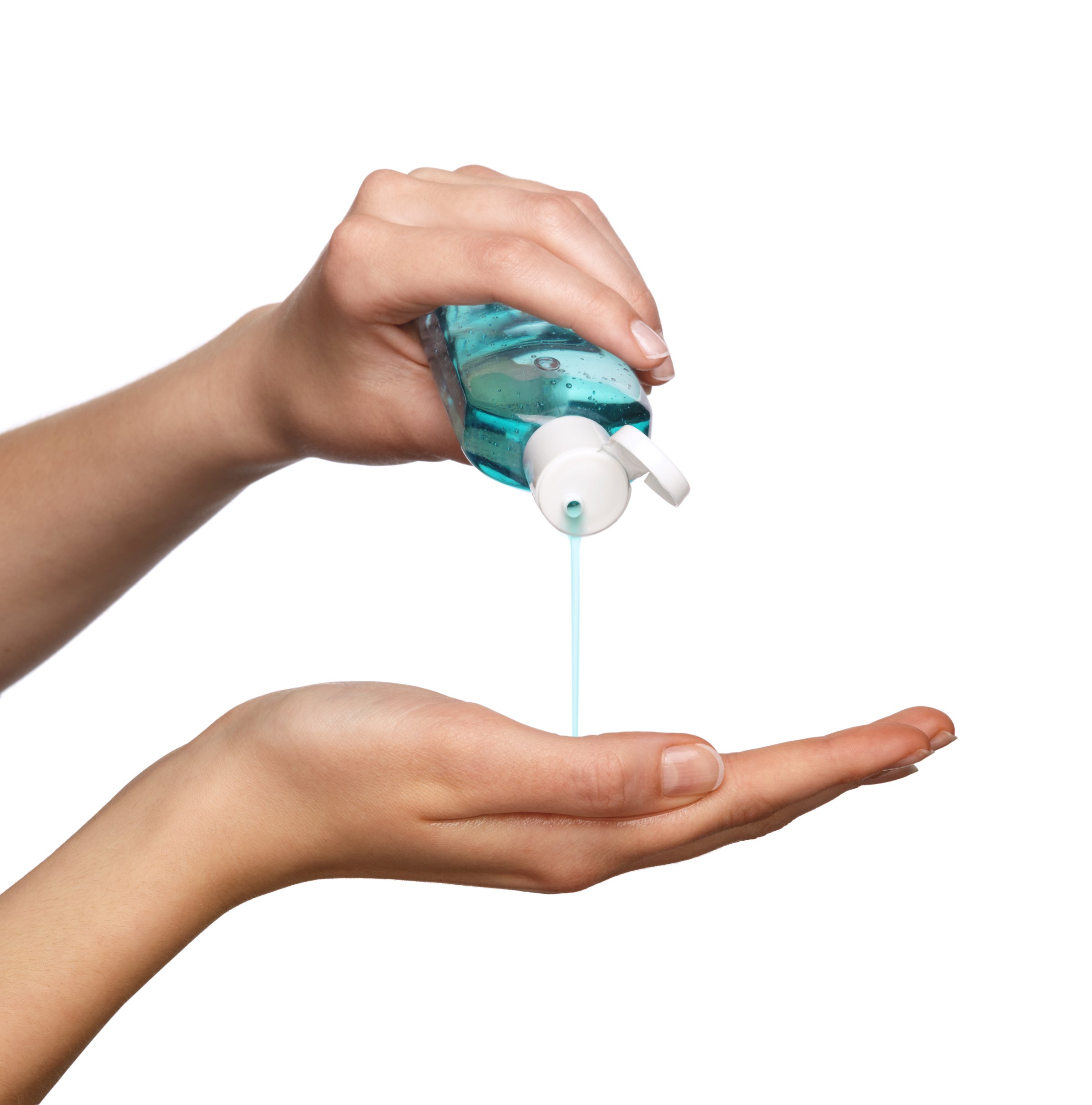
[Updated May 13, 2014] “I’ll give up my hand sanitizer when they pry it from my cold, dead — and probably diseased — fingers.” That used to be my mantra, and who can blame me? I came to this germanoia honestly. Years ago I had to undergo chemotherapy, the consequences of which leaves your immune system punch drunk, because infection-fighting white blood cells get clobbered in the process. “Don’t get sick,” my oncologist advised. “That would be a bad thing.” It was good advice from a really terrific doctor, but for the minor issue that I was, in fact, already pretty sick. Nevertheless, if I had been sanitation conscious before, I had now become crazy about it.
In the country of the lemonade cleanse and the low-carb diet, trend surfing is our standard approach to better health, whether we’re sick or not. But not in the case of antimicrobials and the million other bacteria-zapping products that have now come into general use. Having identified bacteria as Dirt Vader, we have as a nation come to believe that the only good microbe is a dead microbe, and the trend shows no sign of slowing.
But that zeal is hurting us. According a recent World Health Organization report, our obsession with germ killing has resulted in antibiotic-resistant bacteria in every corner of the globe, thanks in part to our willy-nilly use of wide-spectrum antibiotics and, yes, our love of hand sanitizer. [Update: Many hand sanitizers, it has been rightly pointed out to us by the makers of Purell, are alcohol based and have not been named as a cause of bacterial resistance; those of documented concern are the ones that contain triclosan or triclocarbon.] But we’re not even the main problem. In the U.S. the overuse of antibiotics in farming to prevent animals from getting sick and to fatten them up is also widely fingered as the No. 1 source of drug-resistant bacteria. And every year, 2 million Americans get infections not treatable with antibiotics — and 23,000 of them die. The animals get slaughtered, but we get sick.
Last December, the U.S. Food and Drug Administration put the antimicrobial army on notice, informing the makers of antimicrobial soaps that they will have to prove that their products work better than soap and water. Consumers have been urged to resist overusing antimicrobials and more ominously, FDA also warned that triclosan, a synthetic compound found in soaps, deodorants, even toothpaste, may have health issues of its own. “Some data suggest that long-term exposure to certain active ingredients used in antibacterial products — for example, triclosan (liquid soaps) and triclocarban (bar soaps) — could pose health risks, such as bacterial resistance or hormonal effects,” the FDA stated.
But, it’s icky out there. Do you really expect me to drop my first line of defense against incipient ickyness? In my office building in Manhattan, hand-sanitizing stations stand guard on every floor. On the buses and in the subway system across New York City you see clip-on bottles of hand sanitizers attached to backpacks. The subways may be crawling with rats and other vermin, but it’s germs that really freak people out. Eight million people. Eight bazillion microbes with my name on them. You expect me to attack that with plain old soap and water?
And you tell me now that by using products that kill these bugs I’m becoming a conspirator in the Bacterial Resistance League? America has long been a sanitation nation, a quality sometimes attributed to immigrants who left behind the squalor in their homelands (and sometimes rediscovered it here) and imbued their children with the sense that cleanliness is next to godliness, or at least American-ness. Over the past couple of decades, consumer-products companies have found a target rich market in exploiting this history of germ aversion. They have launched wave after wave of microbe-seeking toilet-bowl cleaners, dish detergents, mouthwashes and, no doubt, floor polishes.
And yet the news from FDA and WHO is sobering. The germs are winning — and that’s actually why I should throw down my weapon.
This is not going to be easy for someone who is afraid to sit in a movie theater, who wipes the tops of soda cans with the inside of his T-shirt, who would have no trouble saying no to the bowl of delicious jellybeans on the conference-room table. But despite a world that is filthy with microbes, I will disarm like the health officials suggest, at the same time keeping in mind what Ronald Reagan said: Trust but verify.
One sniffle, though, and I’m reloading.
More Must-Reads From TIME
- The 100 Most Influential People of 2024
- Coco Gauff Is Playing for Herself Now
- Scenes From Pro-Palestinian Encampments Across U.S. Universities
- 6 Compliments That Land Every Time
- If You're Dating Right Now , You're Brave: Column
- The AI That Could Heal a Divided Internet
- Fallout Is a Brilliant Model for the Future of Video Game Adaptations
- Want Weekly Recs on What to Watch, Read, and More? Sign Up for Worth Your Time
Contact us at letters@time.com